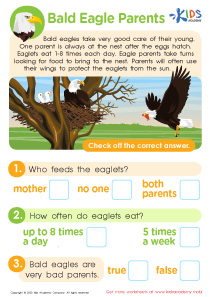Plants Worksheets for Ages 4-9
24 filtered results
-
From - To
Discover our engaging "Plants Worksheets for Ages 4-9," designed to spark curiosity about the natural world. These worksheets provide a fun and interactive way for young learners to explore plant life, from the basics of plant anatomy to the vital role plants play in our environment. Kids can enjoy activities like labeling parts of a plant, identifying different species, and understanding photosynthesis through vibrant illustrations and approachable language. Perfect for educators and parents, these resources aim to foster a lifelong appreciation for science and nature while developing essential skills in reading and comprehension. Explore our collection and inspire young botanists today!
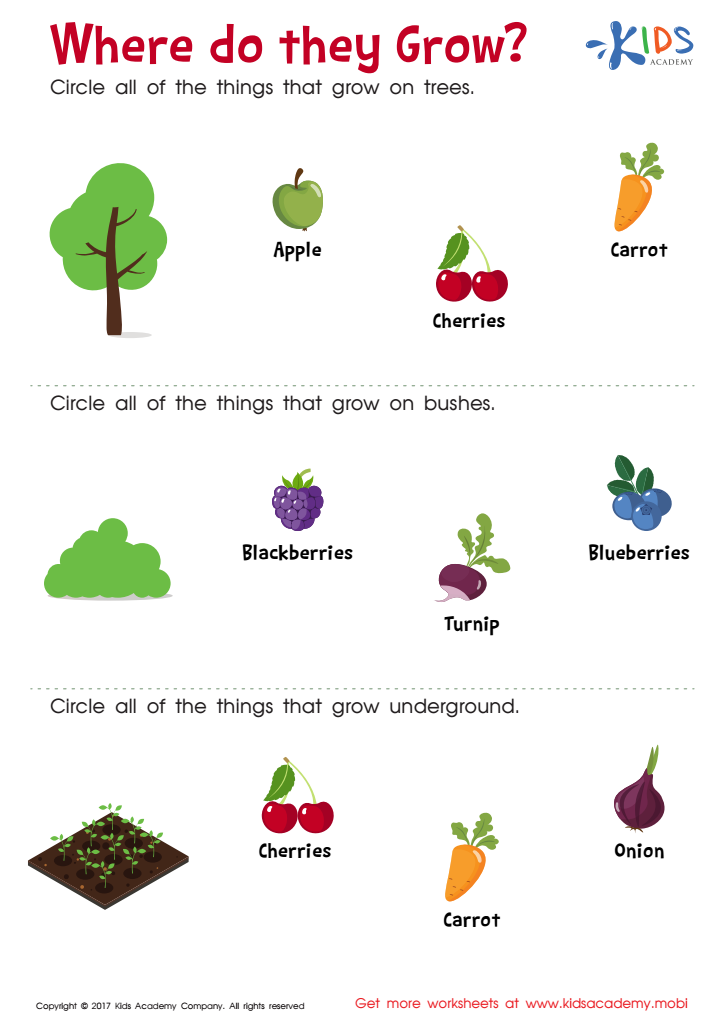

Where Do They Grow Worksheet
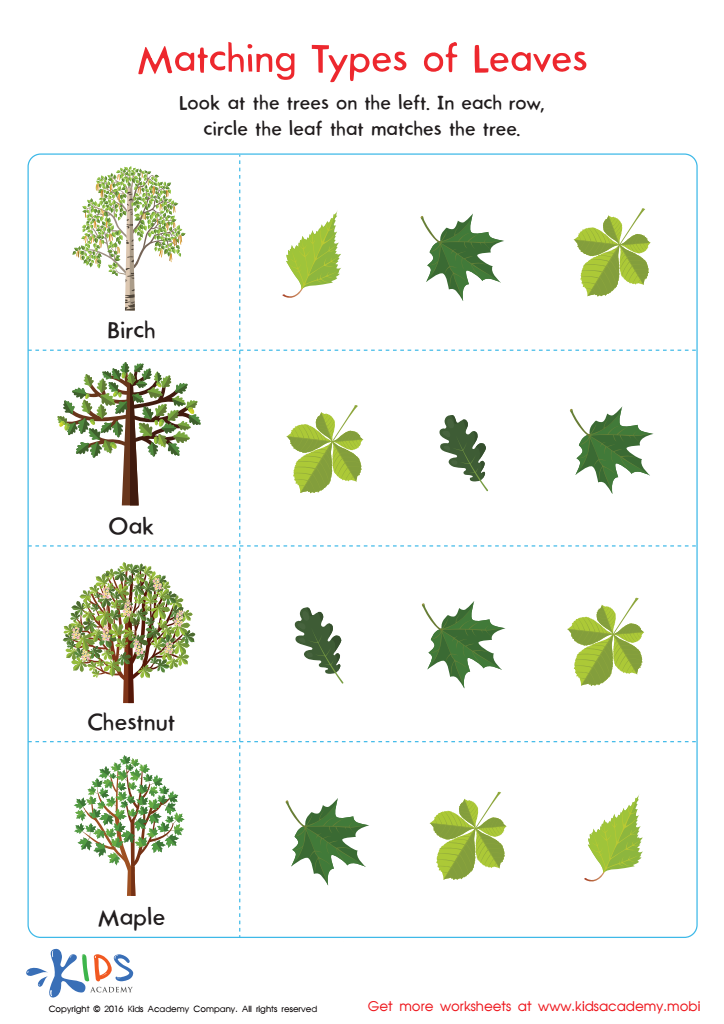

Matching Types of Leaves Printable
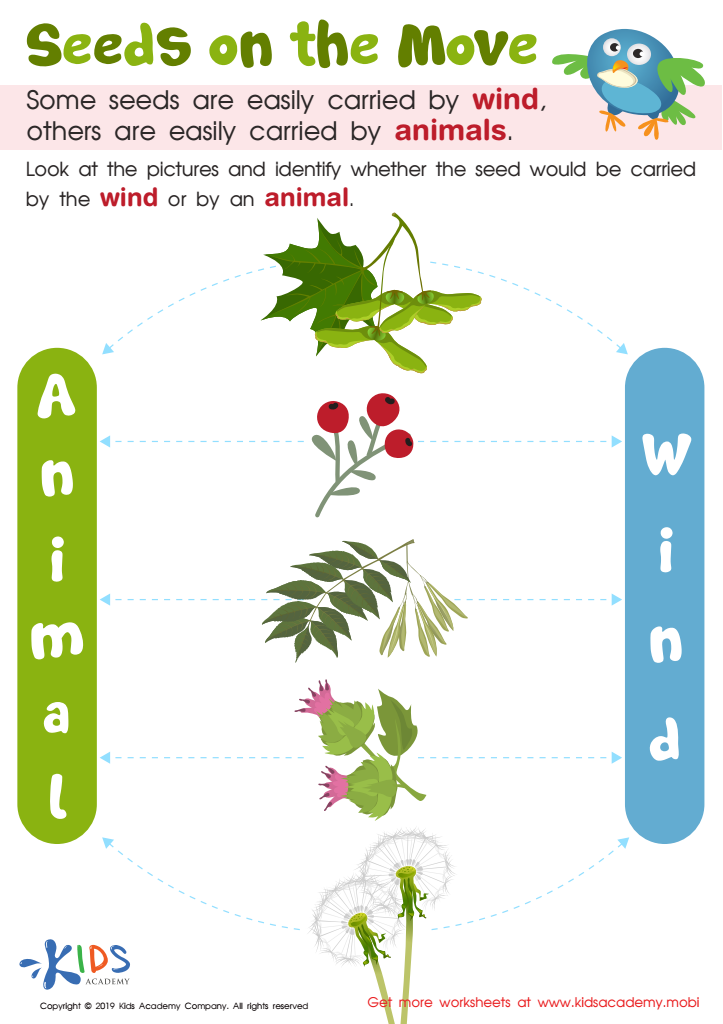

Seeds on the Move Worksheet
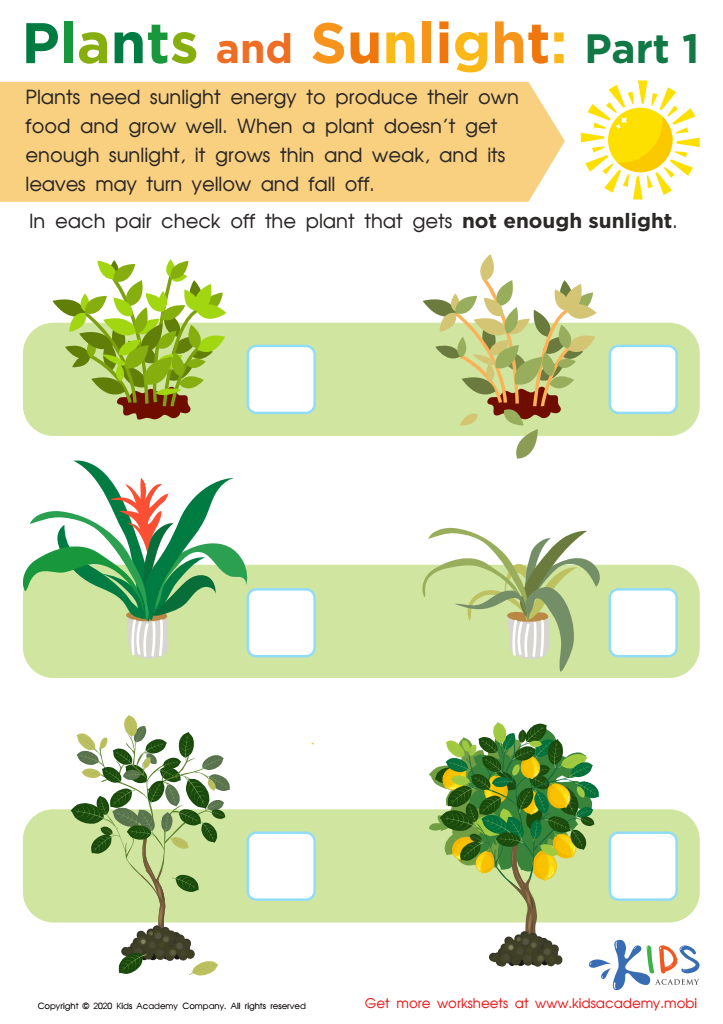

Plants and Sunlight: Part 1 Worksheet
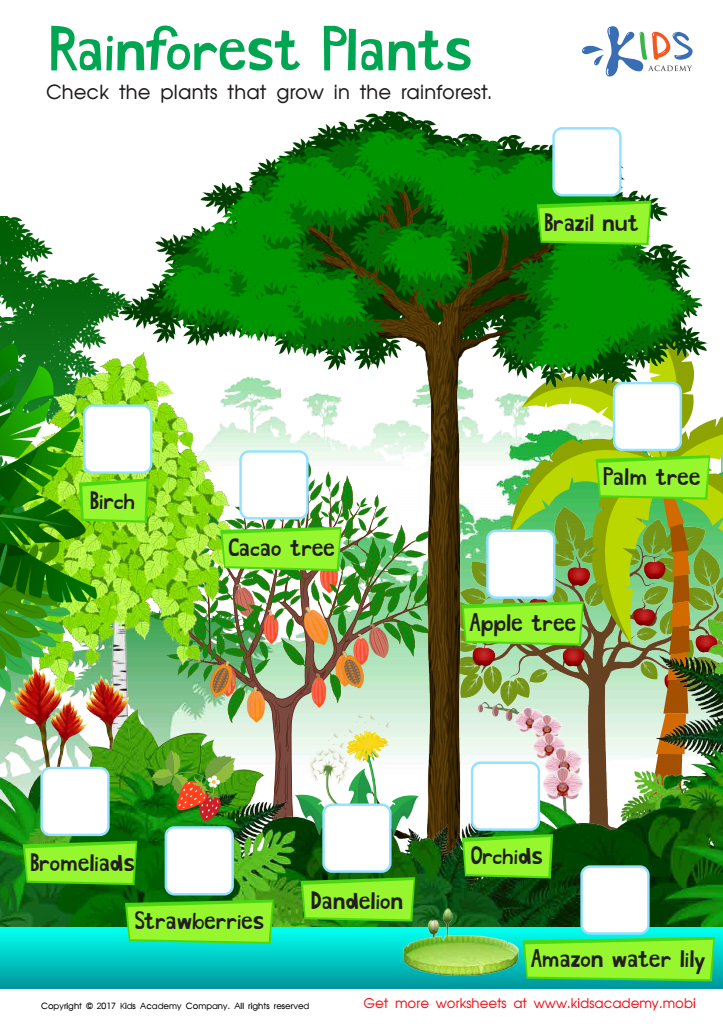

Rainforest Plants Worksheet
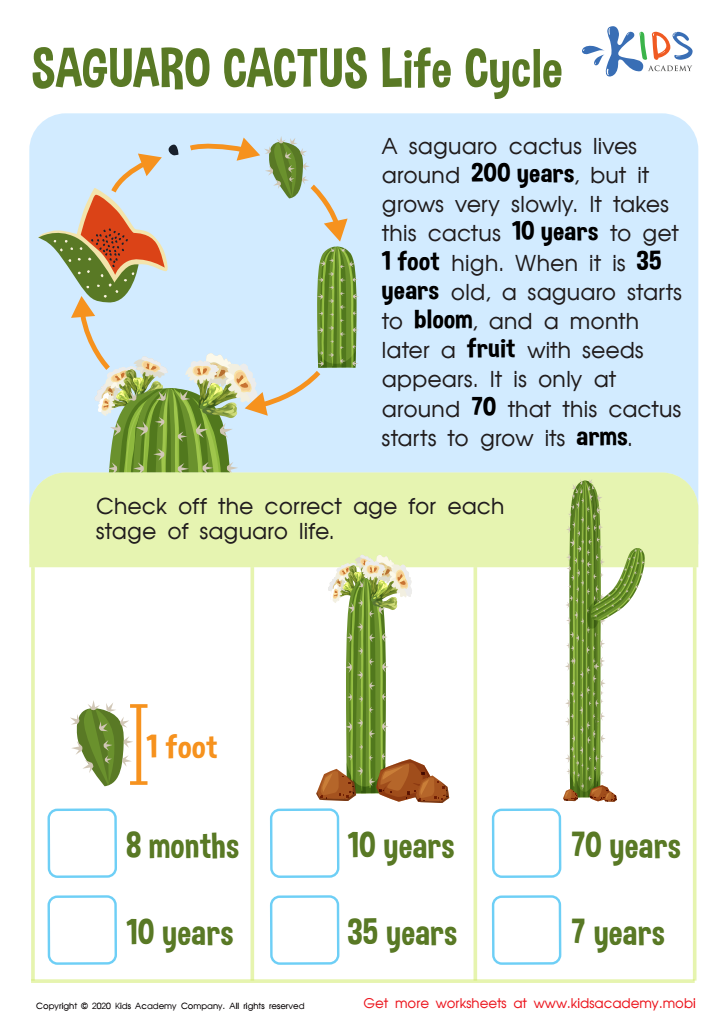

Saguaro Cactus Life Cycle Worksheet
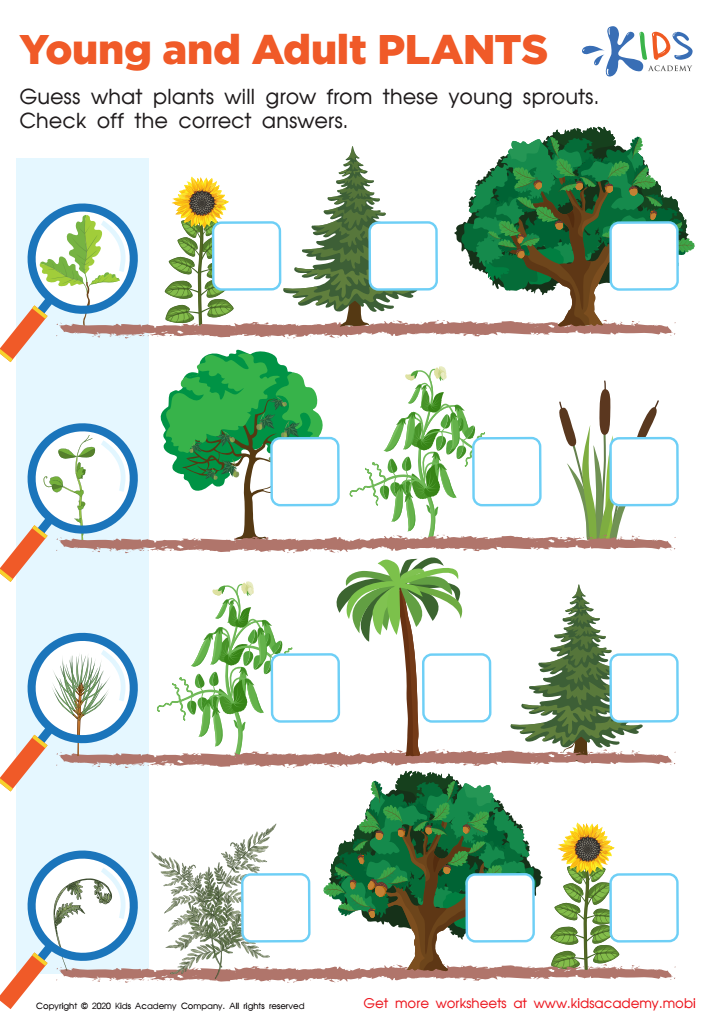

Young and Adult Plants Worksheet
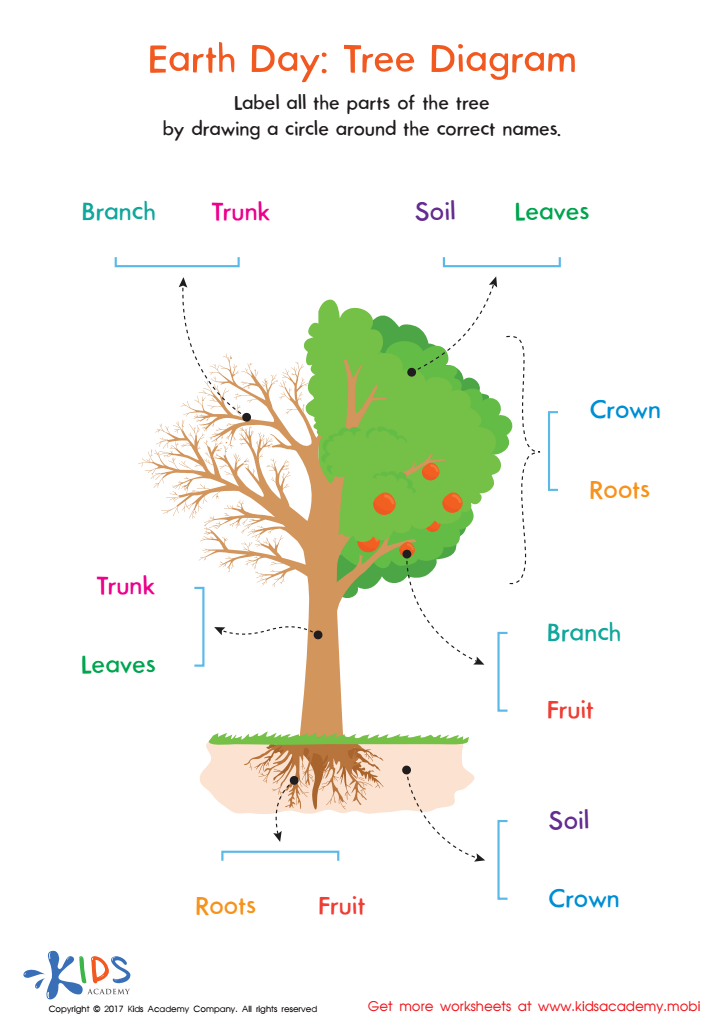

Earth Day: Tree Diagram Worksheet
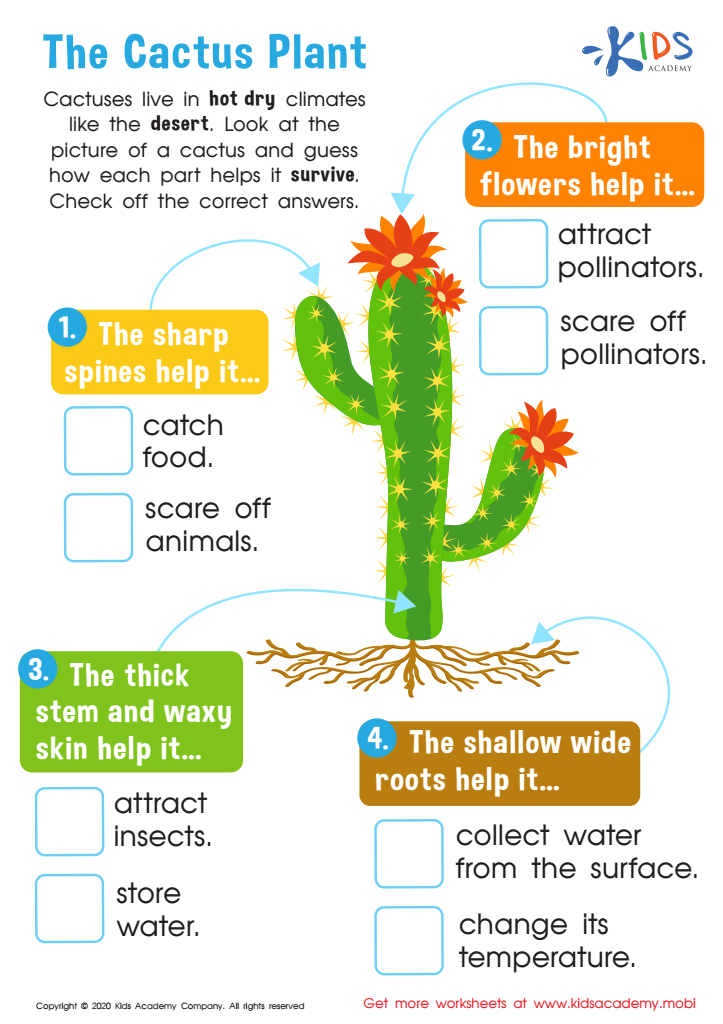

The Cactus Plant Worksheet
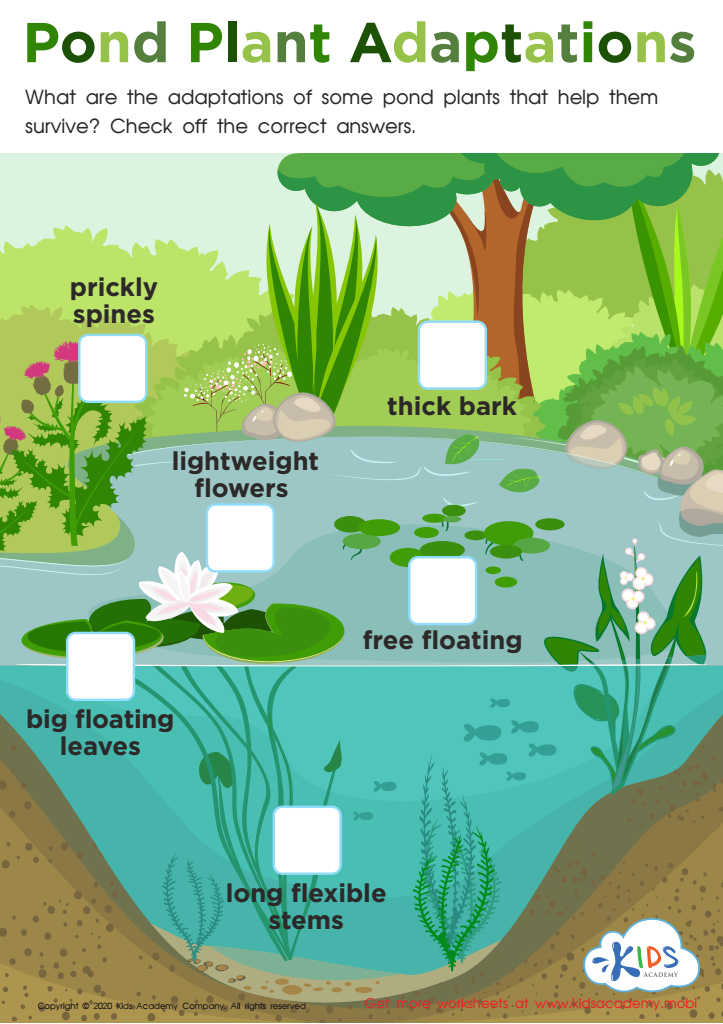

Pond Plant Adaptations
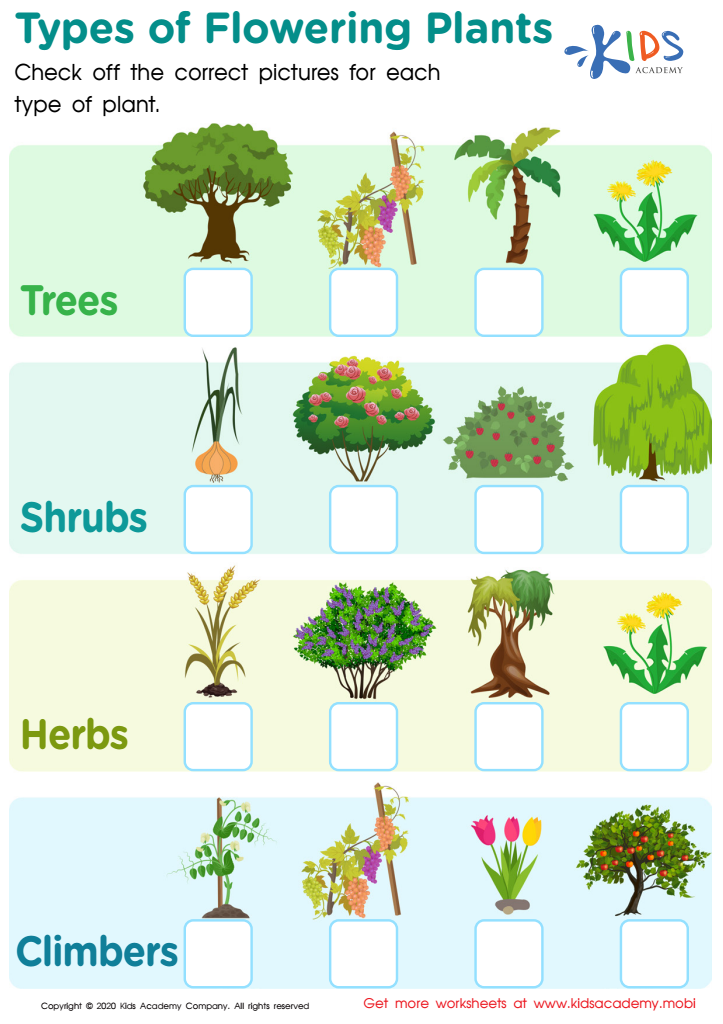

Types of Flowering Plants Worksheet
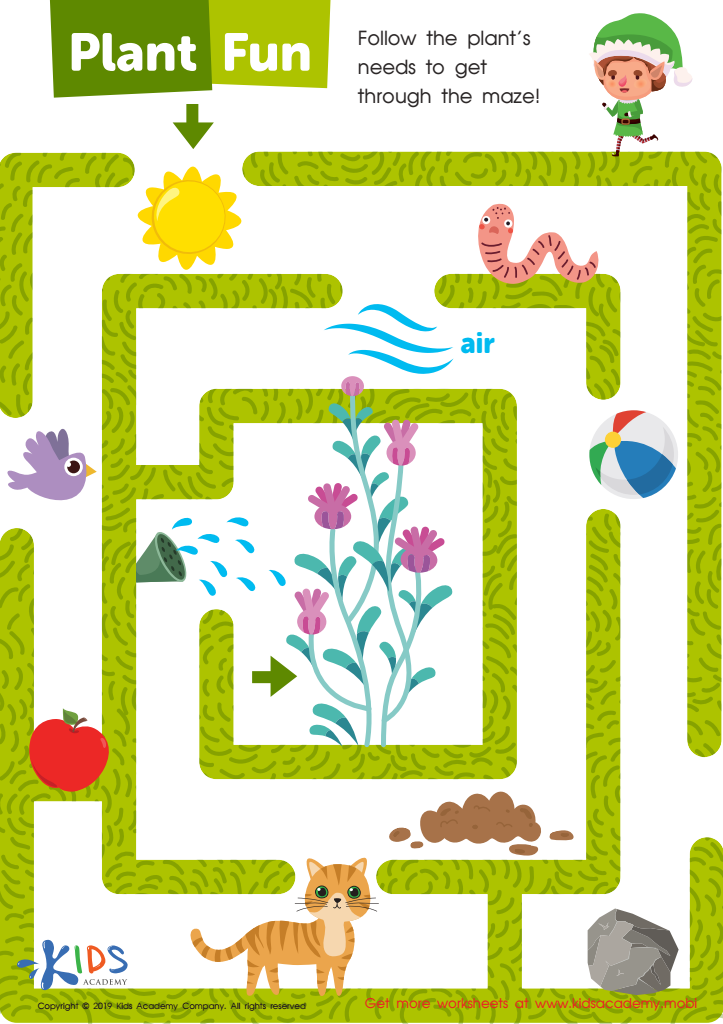

Plant Fun Worksheet
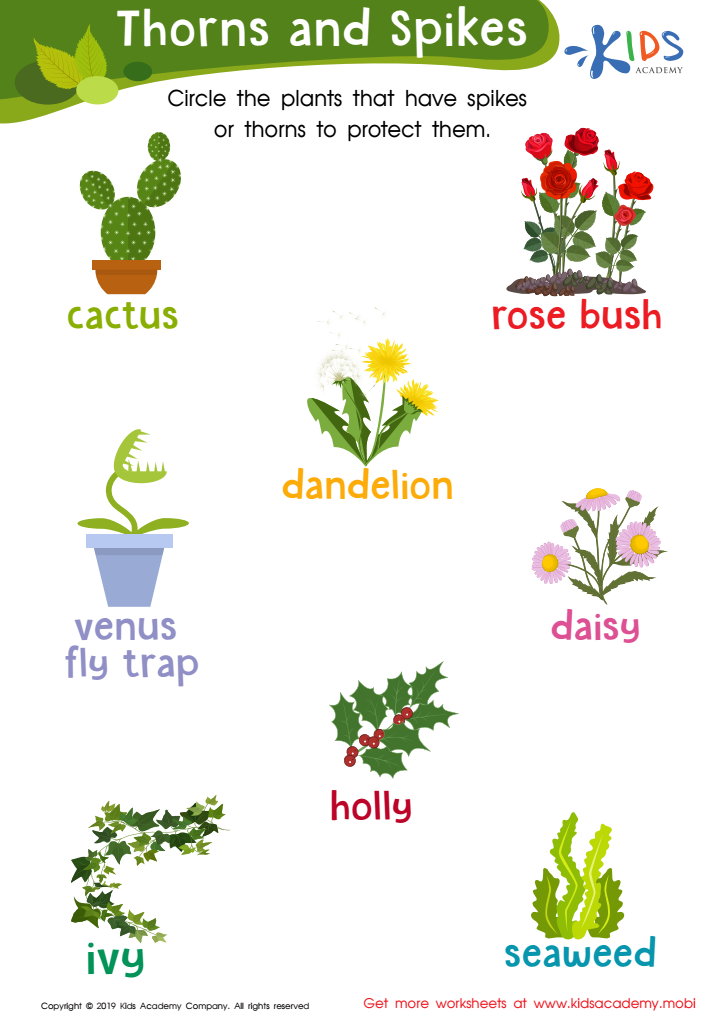

Thorns and Spikes Worksheet
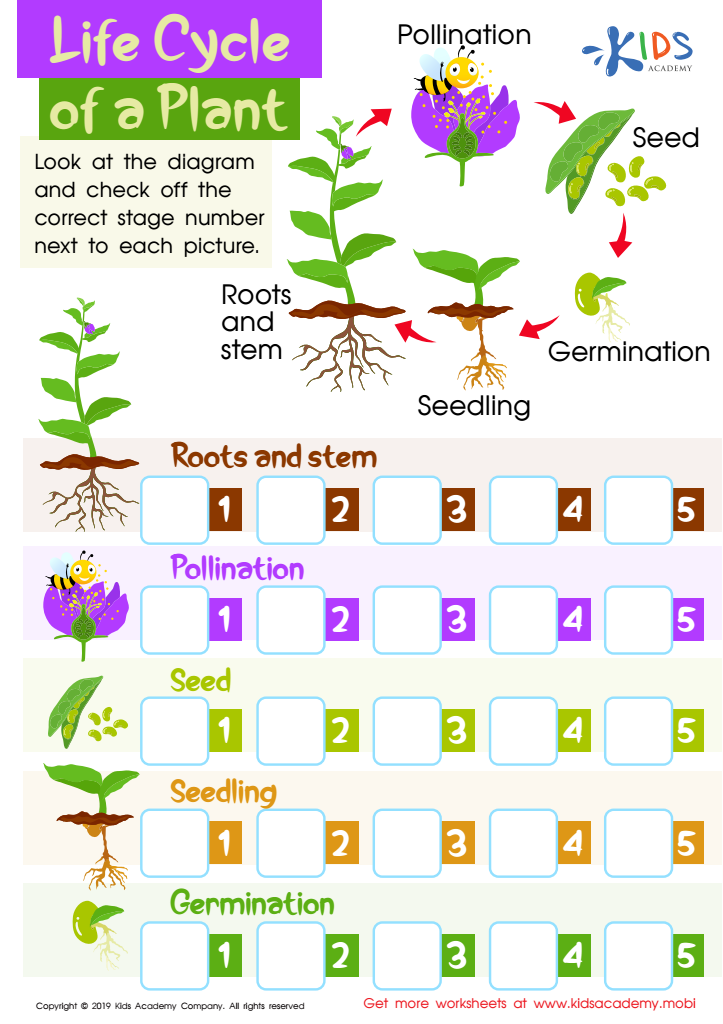

Life Cycle of a Plant Worksheet
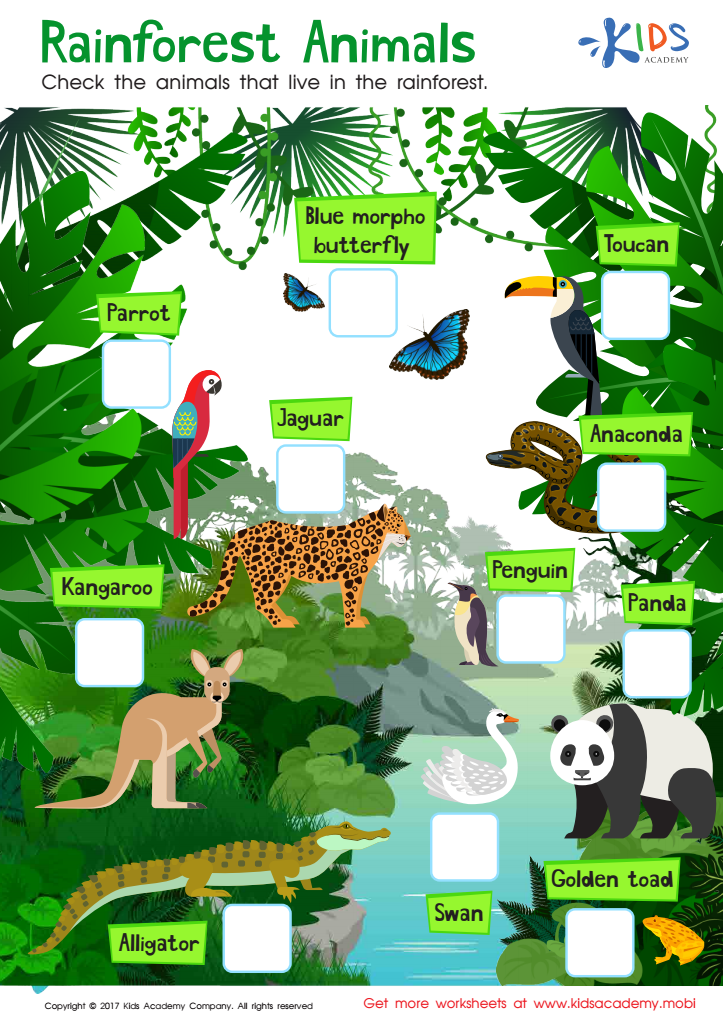

Rainforest Animals Worksheet
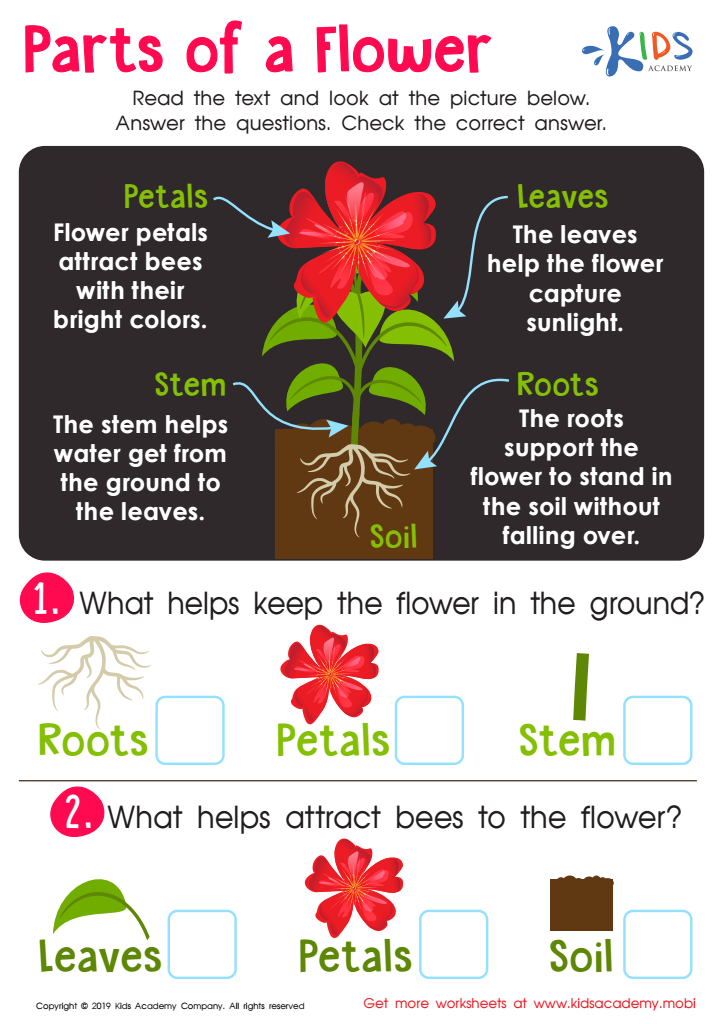

Parts of Flower Worksheet
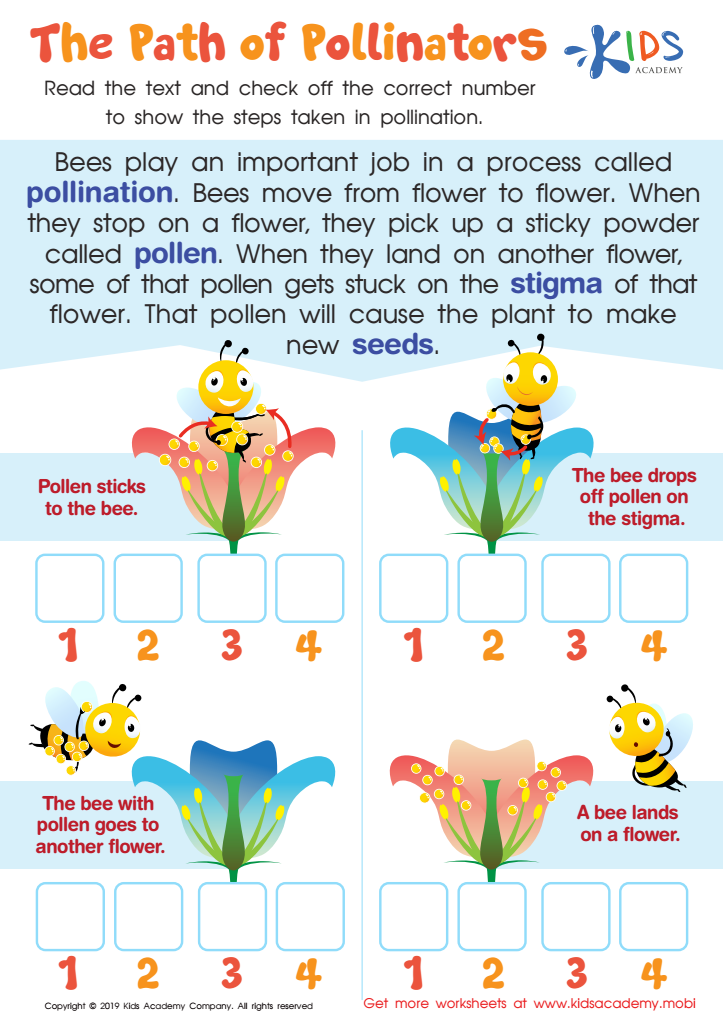

The Path of Pollinators Worksheet


Ecosystems: Assessment 1 Worksheet
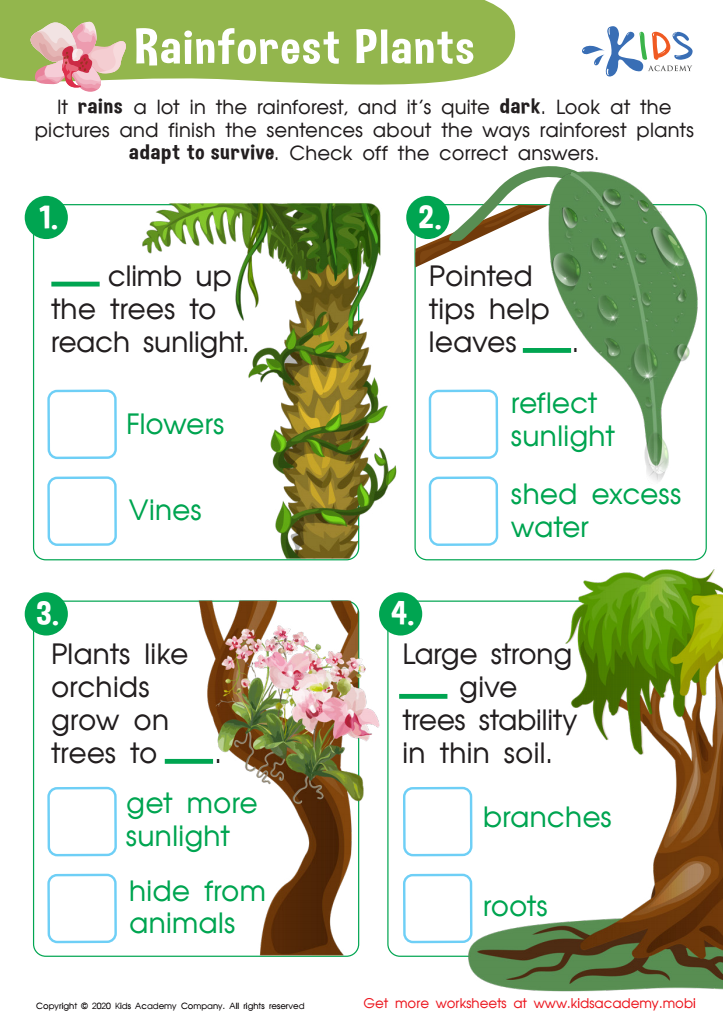

Rainforest Plants Worksheet
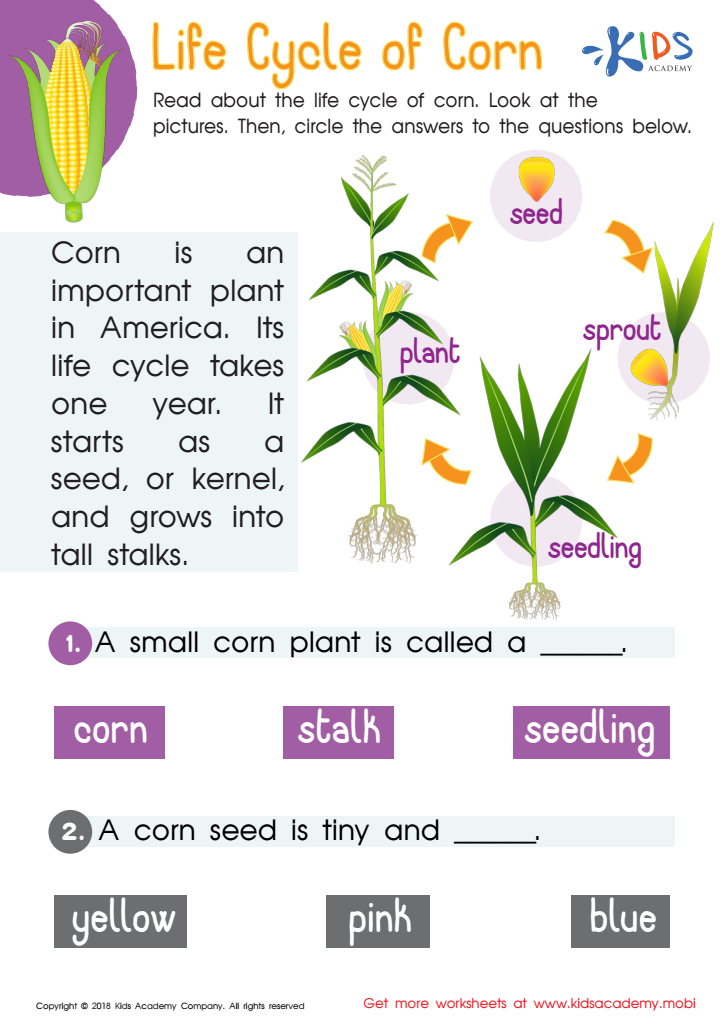

Life Cycle of Corn Worksheet
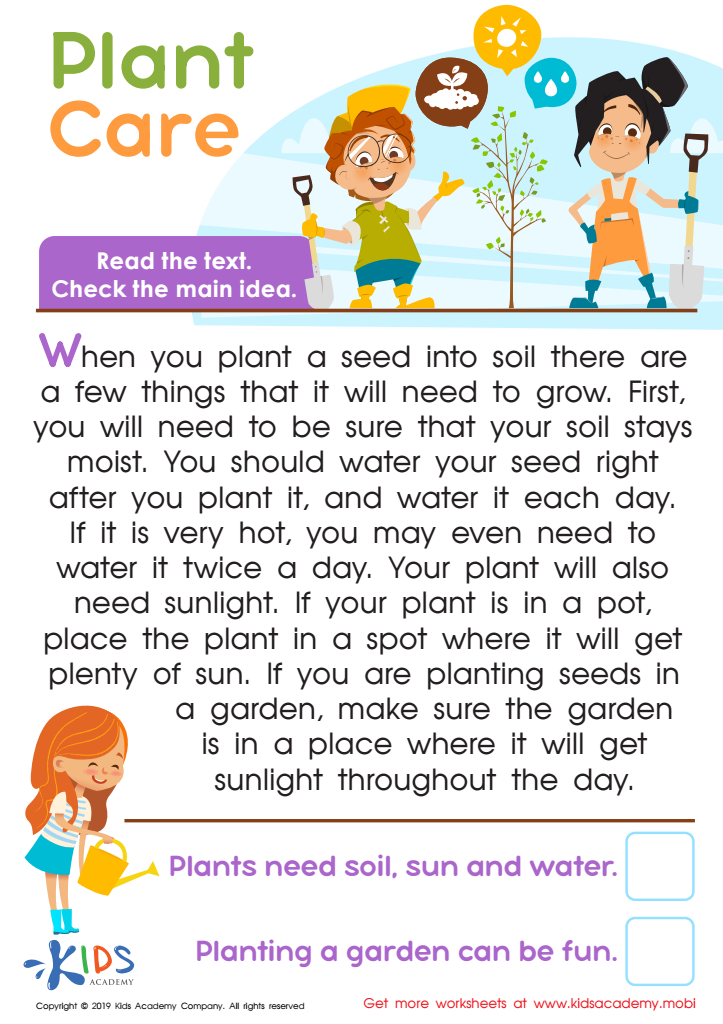

Plant Care Worksheet
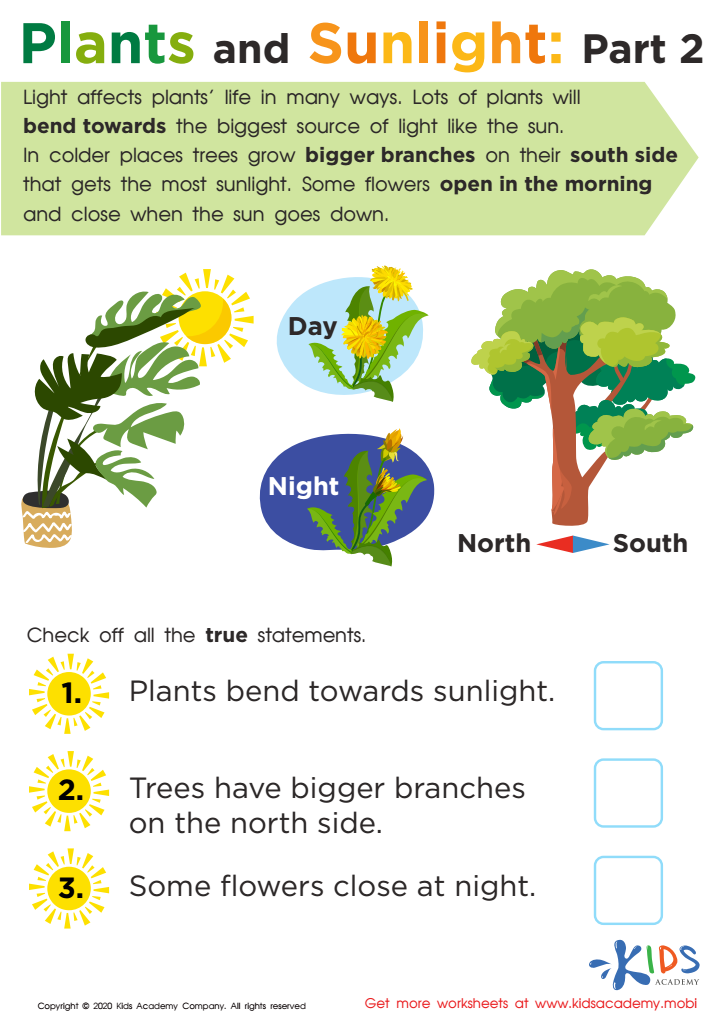

Plants and Sunlight: Part 2 Worksheet


What Do Plants Need to Grow Worksheet
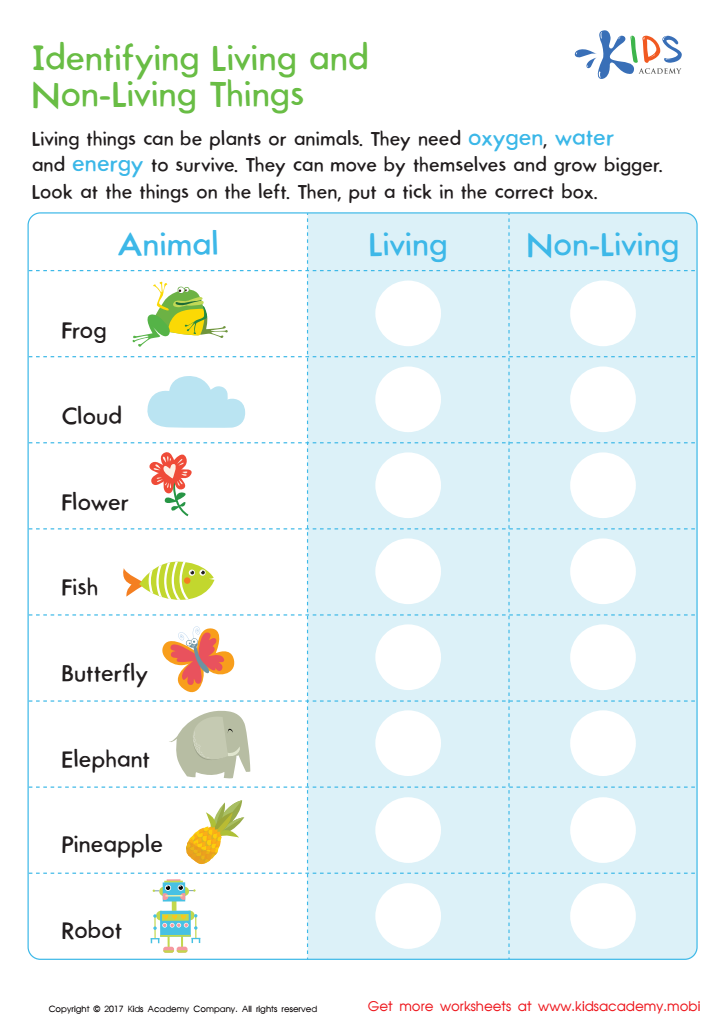

Identifying Living or Non–living Worksheet
Plants play a vital role in the development of children aged 4-9, offering numerous benefits that parents and teachers should prioritize. Firstly, fostering a connection with nature through plants can spark curiosity and enhance observational skills, as children learn to explore and recognize various species. Engaging with plants teaches responsibility, as kids learn to care for living things—water, sunlight, and nurturing practices—instilling a sense of achievement as they witness growth.
Moreover, plants serve as a practical tool for environmental education, helping children understand ecosystems, photosynthesis, and the role of plants in our world, which cultivates awareness about sustainability. This early familiarity with botanical concepts can inspire lifelong environmental stewardship.
Additionally, plants can boost creativity and emotional well-being. Gardening activities, for instance, can also enhance fine motor skills through planting, watering, and harvesting, turning learning into a tangible experience. Plants offer sensory experiences—different textures, colors, and scents—that support cognitive and emotional development.
Finally, integrating plants into the curriculum can encourage cooperation through group projects, fostering teamwork and social skills among peers. By nurturing an appreciation for plants, educators and parents can provide children with the foundations for a healthier, more thoughtful relationship with the natural world.
 Assign to My Students
Assign to My Students








